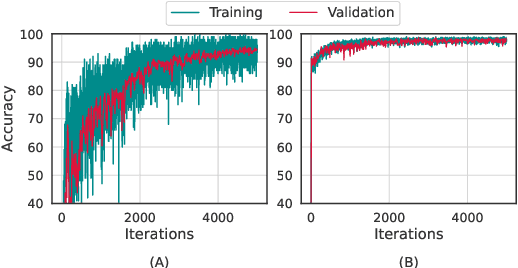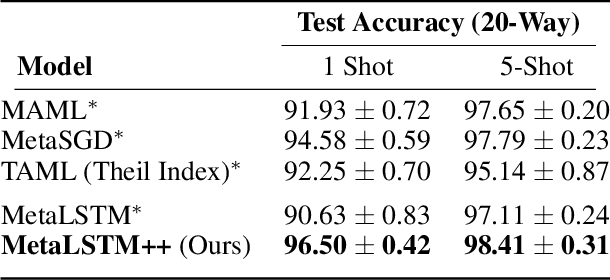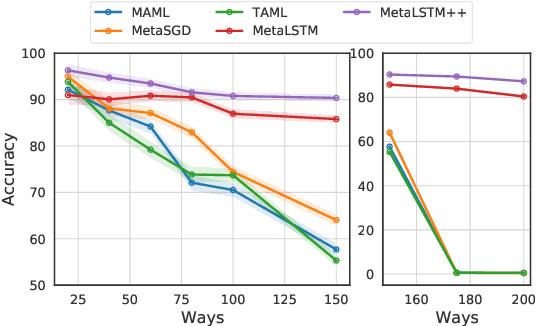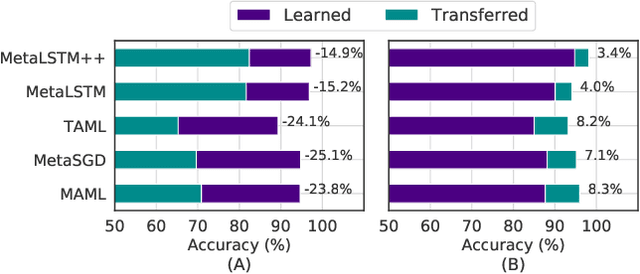Stress Testing of Meta-learning Approaches for Few-shot Learning
Paper and Code
Jan 21, 2021



Meta-learning (ML) has emerged as a promising learning method under resource constraints such as few-shot learning. ML approaches typically propose a methodology to learn generalizable models. In this work-in-progress paper, we put the recent ML approaches to a stress test to discover their limitations. Precisely, we measure the performance of ML approaches for few-shot learning against increasing task complexity. Our results show a quick degradation in the performance of initialization strategies for ML (MAML, TAML, and MetaSGD), while surprisingly, approaches that use an optimization strategy (MetaLSTM) perform significantly better. We further demonstrate the effectiveness of an optimization strategy for ML (MetaLSTM++) trained in a MAML manner over a pure optimization strategy. Our experiments also show that the optimization strategies for ML achieve higher transferability from simple to complex tasks.
 Add to Chrome
Add to Chrome Add to Firefox
Add to Firefox Add to Edge
Add to Edge